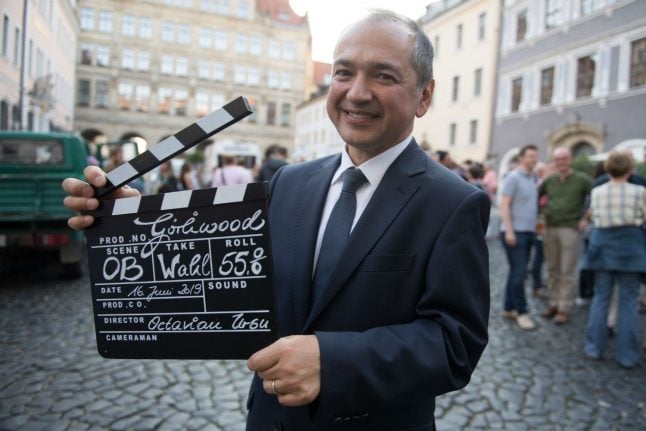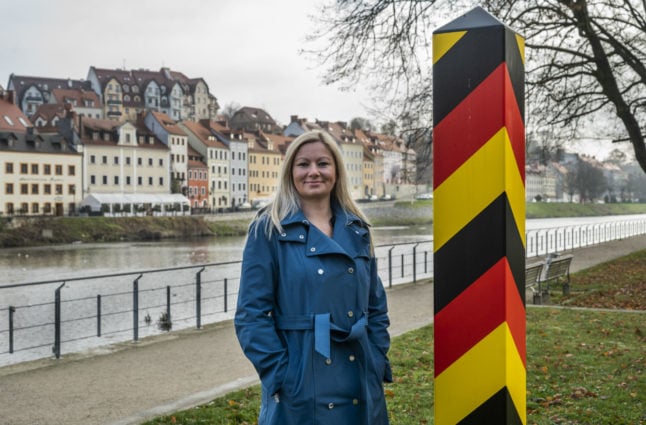In a run-off ballot in Görlitz, Octavian Ursu, 51, a Romanian-born classical musician from Chancellor Angela Merkel's centre-right CDU party, drew 55.1 percent of the vote against 44.9 for the AfD's Sebastian Wippel, 36, an ex-policeman.
The contest for Görlitz's city hall was seen as a litmus test for three upcoming state elections in the ex-communist east, with the future of Merkel's fragile right-left coalition potentially on the line.
SEE ALSO: A portrait of Görlitz, the city that could elect Germany's first AfD mayor
The AfD made strong gains in Görlitz's economically struggling Saxony state in May's European elections and hopes to beat Merkel's CDU party in the upcoming regional poll.
With a population of 55,000, Görlitz on the Polish border boasts a quaint historic town centre that has turned the town into a tourist magnet and attracted top Hollywood directors.
Goerlitz has served as a location for films such as “The Grand Budapest Hotel,” “Inglourious Basterds”, “Around the World in 80 Days” and “The Reader”. But many of its young citizens have turned their backs on the town due to a lack of job opportunities.

A shot of Görlitz, looking out to the town hall. Photo: DPA
Wippel had won the first round three weeks ago with 36.4 percent against Ursu's 30.3 percent.
However, Ursu had since attracted the support of the two smaller parties that were out of the race — one of them the Greens, who came third with 27.9 percent last time.
SEE ALSO: Meet the east German Greens candidate offering another alternative
'Hate and hostility'
The CDU's Saxony state premier, Michael Kretschmer, who hails from Görlitz, had urged voters to reject the AfD, arguing that “many people underestimate how radical the party is”.
The anti-immigration, anti-Muslim AfD — already represented in Germany's parliament and all 16 regional assemblies — is polling as the strongest party in Saxony as well as Brandenburg state.
Both of those regions will go to the polls on September 1st, followed by another eastern state, Thuringia, on October 27th.
The AfD's parliamentary group leader in Berlin, Alice Weidel, said the neck-and-neck result in Görlitz in the face of strong opposition marked an “enormous success” for her party.
“He nearly managed to become the first AfD mayor: Sebastian Wippel won an
unbelievable 44.9 percent of the vote — it could hardly have been closer,” she tweeted.
Fast hätte er es geschafft, erster #AfD-Oberbürgermeister zu werden: Sebastian #Wippel hat in #Görlitz unglaubliche 44,9% der Stimmen erhalten – noch knapper geht es kaum. Ich gratuliere Sebastian von Herzen für diesen riesigen Erfolg! pic.twitter.com/JCaXRq636i
— Alice Weidel (@Alice_Weidel) June 16, 2019
Görlitz, a major trading hub in the Middle Ages, was spared damage by Allied bombing during World War II, preserving its cobblestone lanes and Baroque architecture.
Since the fall of the Berlin Wall almost 30 years ago, hundreds of millions
of euros in German and EU funds have been poured into renovating the pretty
old town on the Neisse river.
Despite its expensive facelift, Görlitz long struggled to attract tenants for its renovated buildings, where many shops have “for sale” signs in the windows.
Leading filmmakers and authors also called on the people of “Görlitz” — as the town is also known in Germany — to shun political extremists or risk isolation.
“Don't give in to hate and hostility, conflict and exclusion,” read a
petition signed by actor Daniel Brühl (“Goodbye Lenin”) and British director Stephen Daldry.
By Deborah Cole





 Please whitelist us to continue reading.
Please whitelist us to continue reading.
Member comments